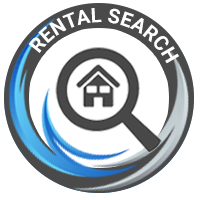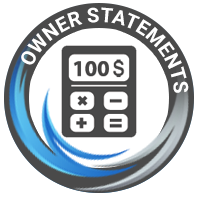 Real estate investing is littered with traps that can ruin your financial dream before you even know what hit you. That’s why it’s crucial to thoroughly research opportunities and weigh their pros and cons. Our property managers have put together this list of five things every landlord should consider when buying new rental property.
Real estate investing is littered with traps that can ruin your financial dream before you even know what hit you. That’s why it’s crucial to thoroughly research opportunities and weigh their pros and cons. Our property managers have put together this list of five things every landlord should consider when buying new rental property.
- Location
- Tenant & Landlord Rights
- Taxes & Other Expenses
- Insurance
- Property Management
It’s All About Location
The neighborhood you choose will determine your vacancy rate and what types of tenants you attract. For instance, if your property is near a college, students will dominate your pool of potential tenants. Low vacancies allow landlords to raise rents, whereas a high number of vacancies force landlords to lower rent to attract tenants to the area.
What Is A Good Location?
The ideal neighborhood has plenty of job opportunities, a low crime rate, and an attractive set of amenities — parks, restaurants, public transportation, etc. Getting information from official sources is a good start, but you’ll also want to talk to the neighbors to gain an insider’s perspective. Visit at different times and on different days of the week to gather a broad range of insights.
What Are The Tenant & Landlord Rights?
Familiarizing yourself with the landlord-tenant laws of your city and state is something every landlord must do. Following those laws is vital to running a safe, profitable business with minimal risk. Ignorance isn’t an excuse, nor will it protect you from a lawsuit.
Talking To Experts Can Save On Headaches
While a targeted internet search can fill you in on the basics, it’s wise to search out an expert’s knowledge of the details. The people on your state’s real estate board and in your local association for landlords and property managers should be able to answer all of your questions.
Remember To Add In Taxes & Other Expenses
Ensure that all of the houses you seriously consider can produce enough rent to cover taxes, your mortgage, and other expenses. Banks often have stricter lending requirements for investment properties. Don’t underestimate how much it will cost you to maintain the property, either.
Property taxes tend to vary widely across a community. Visit the local assessment office for current tax information, and ask homeowners if taxes are likely to increase soon.
Don’t Forget Insurance
Insurance is one more thing that will eat away at your rental income. Be aware that insuring the building may be more expensive than it would be for an owner-occupied house. If your area is prone to flooding or earthquakes, the cost of insurance alone could easily make a home on your shortlist no longer financially viable.
Consider Property Management
Managing your own rental property cuts costs considerably, but it requires you to be on call 24-7 for emergencies (among many other things). Another option is hiring a property management company to handle everything from maintenance to collecting rent, saving you time, stress, and money in the long run.
Call A Colorado Property Manager Today
Finding your ideal rental property can be as thrilling as finding your dream home. Call Cobalt Creek Property Management for help with finding your next (or first) rental home in Denver.





